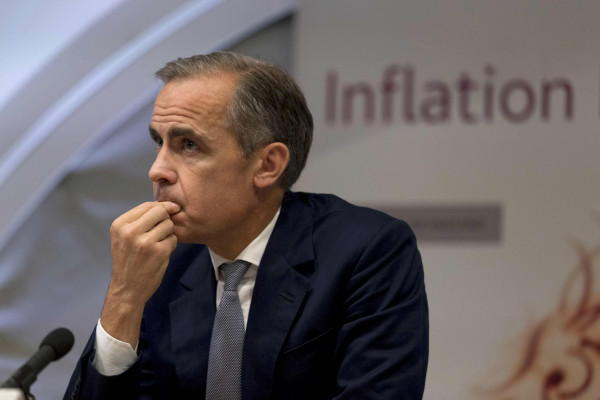

Speaking to the Economic Club of New York late last week, the Bank's governor said he deemed a no deal Brexit with no transition period "unlikely" but warned the Bank needed to prepare of the outcome, which would be most disruptive to the wider economy.
Mr Carney said the Bank of England has run tests based on house prices falling by 35 per cent, GDP falling by 4.5 per cent - which would create a deep recession - commercial property falling in value by 40 per cent, unemployment rising to 9.5 per cent and interest rates rising by 4 percentage points. It had found that UK banks would remain healthy.
He said for this reason the Bank of England would likely allow commercial banks to lend as much as £300bn more into the economy in the aforementioned scenario.
He said the job of central banks was to run counter to the prevailing economic cycle, meaning when commercial banks are eager to lend and consumers eager to borrow, the Bank of England is to force banks to retain capital and not lend it out.
In contrast, at times of economic stress, central banks should encourage more lending as a way to stimulate economic growth, as long as the banks' balance sheets are able to cope with a financial shock.
Mr Carney said: "We judge that the UK banking system has the capacity to absorb not only the consequences of a no deal no transition Brexit, but also the losses that could be associated with intensifying trade tensions, a further sharp tightening of financing conditions for emerging markets, and substantial additional misconduct costs.
"Second, liquidity is an important part of our contingency planning for Brexit. UK-based banks and consumer credit providers currently have around £300bn of borrowing capacity at the Bank through collateral pre-positioned in our facilities."
Commercial banks are required to keep a certain portion of their assets in cash or other liquid assets, this is known as the capital buffer.
The £300bn is presently part of this buffer, and is an aggregate number across all UK banks.
According to Mr Carney the amount of capital banks would be required to keep could be lowered in the event of a no deal Brexit by £300bn, freeing commercial banks to lend this to the economy.
Allowing commercial banks to borrow more would increase the supply of money in the economy, but whether this has a significant impact on GDP growth depends on whether it stimulates increased demand for money, that is, if consumers and businesses feel confident enough in their immediate economic prospects to want to take on more debt.
David Coombs, multi-asset investor at Rathbones, said he cannot see a scenario in the UK economy where a no deal Brexit does not lead to a recession.
In terms of what this means for investors, Guy Stephens, technical investment director at Rowan Dartington, said: "Contrarian investors will tell you to buy when there is blood on the streets and sell when all looks rosy – it feels like we are nearer the first scenario than the second."
david.thorpe@ft.com




